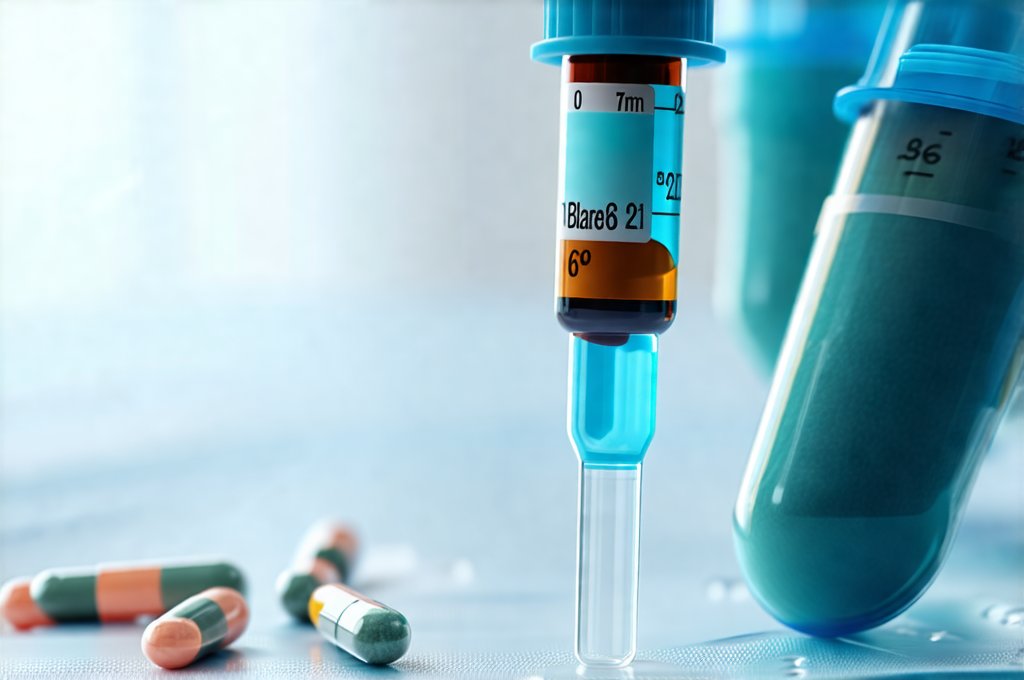The frustrating cycle of urinary tract infections (UTIs) is all too familiar for many people – the burning sensation, frequent urge to go, and overall discomfort. Often, antibiotics are prescribed as the quick fix, and they are effective in eliminating the bacteria causing the infection. However, what happens when the initial symptoms subside with antibiotics, only to return shortly after finishing the course? This is a growing concern known as post-antibiotic bladder flares, leaving many wondering why their bladders seem to be rebelling even after treatment and searching for answers beyond just another round of medication. It’s a complex issue that impacts quality of life and requires understanding the intricate relationship between antibiotics, the gut microbiome, and the urinary tract.
These post-antibiotic bladder flares aren’t necessarily a sign of antibiotic resistance, though that is always a concern with repeated antibiotic use. Instead, they often represent a disruption to the delicate balance within our bodies. Antibiotics, while designed to kill harmful bacteria, don’t discriminate – they also eliminate beneficial bacteria in the gut and urinary tract. This imbalance can leave us vulnerable to opportunistic pathogens, altered bladder function, and increased inflammation, creating a cascade of symptoms that mimic a UTI even when no infection is present. Understanding these underlying mechanisms is crucial for finding effective strategies to manage these flares and prevent them from becoming chronic problems. How to support the bladder after antibiotics can be a vital step in restoring balance.
The Gut-Bladder Connection: A Deeper Look
The link between the gut microbiome and bladder health might seem surprising, but it’s increasingly recognized as a key factor in urinary tract wellness. Our gut harbors trillions of microorganisms – bacteria, fungi, viruses – collectively known as the gut microbiome. This ecosystem plays a vital role in immune function, nutrient absorption, and even mental health. Disrupting this balance with antibiotics can have far-reaching consequences, impacting not just digestion but also our ability to fight off infections and regulate inflammation throughout the body. A compromised gut microbiome can lead to increased intestinal permeability – often referred to as “leaky gut” – allowing inflammatory molecules to enter the bloodstream and potentially exacerbate bladder symptoms.
The connection extends beyond inflammation. Certain bacteria in the gut produce metabolites that influence the immune system, modulating its response to potential threats. When antibiotics wipe out beneficial bacteria, these protective mechanisms are diminished, leaving us more susceptible to flare-ups. Furthermore, studies have shown a correlation between specific gut microbiome compositions and urinary tract health, suggesting that restoring microbial diversity is essential for long-term bladder wellness. This isn’t just about eliminating bad bacteria; it’s about fostering a thriving ecosystem of beneficial microorganisms that support overall immune function and reduce inflammation.
The impact on the urinary microbiome itself is also significant. While traditionally thought to be sterile, we now know there is a microbial community present in the bladder. Antibiotics can disrupt this delicate balance, allowing for opportunistic pathogens to colonize and contribute to recurring symptoms. Restoring this microbiome through targeted interventions is an emerging area of research with promising potential for preventing post-antibiotic flares. Bladder sensitivity after antibiotics in women is a common concern that can be addressed.
Addressing Inflammation & Bladder Sensitivity
Post-antibiotic flares frequently involve heightened bladder sensitivity and chronic inflammation, even in the absence of active infection. This phenomenon can lead to a condition called interstitial cystitis/bladder pain syndrome (IC/BPS), although it’s important to differentiate between true IC/BPS and post-antibiotic flare symptoms. The inflammatory response triggered by antibiotic disruption isn’t always easily resolved, leading to ongoing discomfort and urgency. Identifying the triggers for this inflammation is crucial for developing a personalized management plan.
Dietary factors often play a significant role in bladder irritation. Foods that are acidic or contain bladder irritants – caffeine, alcohol, spicy foods, artificial sweeteners – can exacerbate symptoms in sensitive individuals. Similarly, stress and emotional factors can contribute to muscle tension and increased bladder sensitivity. A holistic approach that addresses both physical and emotional well-being is therefore essential for long-term relief. This may involve incorporating anti-inflammatory foods into the diet, practicing stress-reducing techniques like yoga or meditation, and working with a healthcare professional to explore personalized strategies for managing symptoms.
It’s also important to consider pelvic floor dysfunction as a contributing factor. Antibiotics can sometimes alter muscle tone in the pelvic region, leading to imbalances that contribute to bladder pain and urgency. Pelvic floor physical therapy can help restore proper function and alleviate these symptoms.
Understanding Your Flare-Ups: Triggers & Patterns
Identifying your individual flare triggers is perhaps one of the most empowering steps you can take towards managing post-antibiotic bladder flares. Keeping a detailed symptom diary can be incredibly helpful in uncovering patterns and pinpointing potential culprits. Record what you eat, drink, how stressed you are, activities you engaged in, and any medications or supplements taken – then correlate these with your symptoms.
- Food & Drink: Pay attention to whether certain foods consistently trigger flare-ups. Common irritants include caffeine, alcohol, citrus fruits, tomatoes, spicy foods, artificial sweeteners, and carbonated beverages.
- Stress Levels: Note how stress impacts your bladder symptoms. Stress can tighten pelvic floor muscles and increase inflammation.
- Physical Activity: Observe if certain activities – such as prolonged sitting or strenuous exercise – exacerbate your symptoms.
- Hygiene Products: Consider whether scented soaps, lotions, or feminine hygiene products contribute to irritation.
By meticulously tracking these factors, you can begin to build a personalized understanding of what triggers your flares and develop strategies for minimizing their impact. This proactive approach empowers you to take control of your bladder health and reduce reliance on antibiotics.
Restoring Gut Health: Probiotics & Prebiotics
As we discussed, the gut microbiome plays a vital role in urinary tract health. Rebuilding a healthy gut microbiome post-antibiotics is therefore essential for preventing recurring flares. This can be achieved through both probiotics – live microorganisms that confer a health benefit when consumed – and prebiotics – non-digestible fibers that feed beneficial bacteria already present in the gut.
- Probiotic Selection: Choosing the right probiotic strain is crucial, as different strains have different effects. Look for strains specifically researched for urinary tract health, such as Lactobacillus rhamnosus GR-1 and Lactobacillus reuteri RC-14. These strains have shown promise in colonizing the vagina and promoting a healthy vaginal microbiome, which can help prevent UTIs.
- Prebiotic Foods: Incorporate prebiotic-rich foods into your diet, such as garlic, onions, leeks, asparagus, bananas, oats, and apples. These foods provide nourishment for beneficial bacteria, helping them thrive.
- Fermented Foods: Include fermented foods like yogurt (with live cultures), kefir, sauerkraut, kimchi, and kombucha in your diet to introduce diverse strains of probiotics naturally.
It’s important to note that rebuilding the gut microbiome takes time and consistency. Don’t expect overnight results – it’s a gradual process that requires ongoing effort. What women should avoid after a bladder infection can help prevent recurrence.
Beyond Antibiotics: Alternative & Supportive Therapies
While antibiotics are often the first line of defense for UTIs, exploring alternative and supportive therapies can be invaluable in managing post-antibiotic flares and preventing recurrence. These approaches aim to address the underlying imbalances contributing to bladder sensitivity and inflammation.
- D-Mannose: This naturally occurring sugar found in cranberries has been shown to prevent bacteria from adhering to the bladder wall, potentially reducing the risk of UTIs.
- Uva Ursi: A traditional herbal remedy with antimicrobial properties, Uva Ursi can help support urinary tract health, but should be used cautiously and under the guidance of a healthcare professional due to potential side effects.
- Pelvic Floor Physical Therapy: As mentioned earlier, this therapy can address pelvic floor dysfunction and alleviate bladder pain and urgency.
- Mindfulness & Stress Reduction: Practicing mindfulness techniques like meditation or deep breathing exercises can help reduce stress and improve overall well-being, which in turn can positively impact bladder health.
Disclaimer: This article provides general information for educational purposes only and should not be considered medical advice. Always consult with a qualified healthcare professional for diagnosis and treatment of any health condition.





















